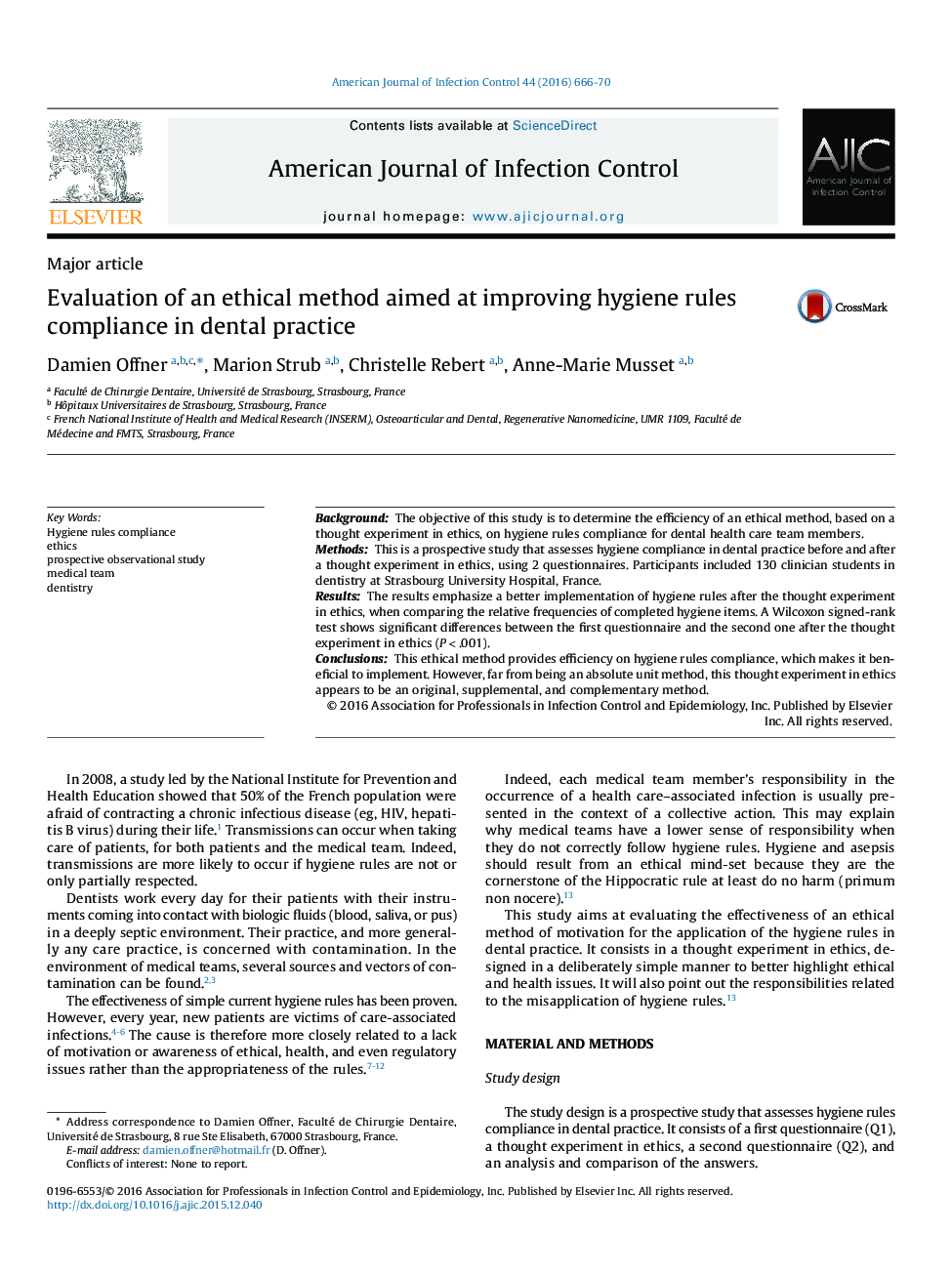| Article ID | Journal | Published Year | Pages | File Type |
|---|---|---|---|---|
| 5866799 | American Journal of Infection Control | 2016 | 5 Pages |
â¢Hygiene rules compliance can be improved by ethical methods.â¢An effective thought experiment in ethics can be implemented in an academic context.â¢Forgetfulness and lack of time are the main reasons of minor hygiene compliance.
BackgroundThe objective of this study is to determine the efficiency of an ethical method, based on a thought experiment in ethics, on hygiene rules compliance for dental health care team members.MethodsThis is a prospective study that assesses hygiene compliance in dental practice before and after a thought experiment in ethics, using 2 questionnaires. Participants included 130 clinician students in dentistry at Strasbourg University Hospital, France.ResultsThe results emphasize a better implementation of hygiene rules after the thought experiment in ethics, when comparing the relative frequencies of completed hygiene items. A Wilcoxon signed-rank test shows significant differences between the first questionnaire and the second one after the thought experiment in ethics (Pâ<â.001).ConclusionsThis ethical method provides efficiency on hygiene rules compliance, which makes it beneficial to implement. However, far from being an absolute unit method, this thought experiment in ethics appears to be an original, supplemental, and complementary method.
